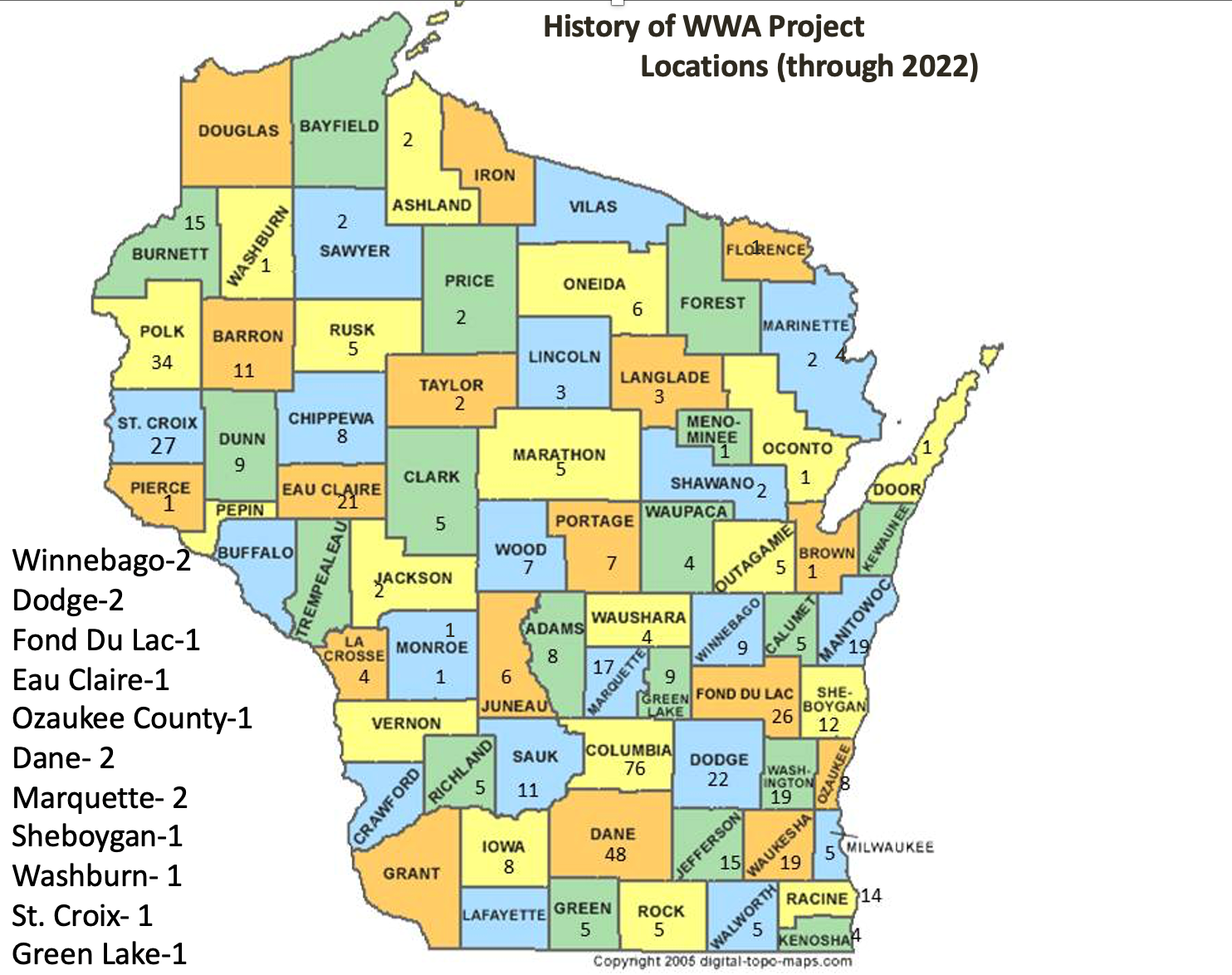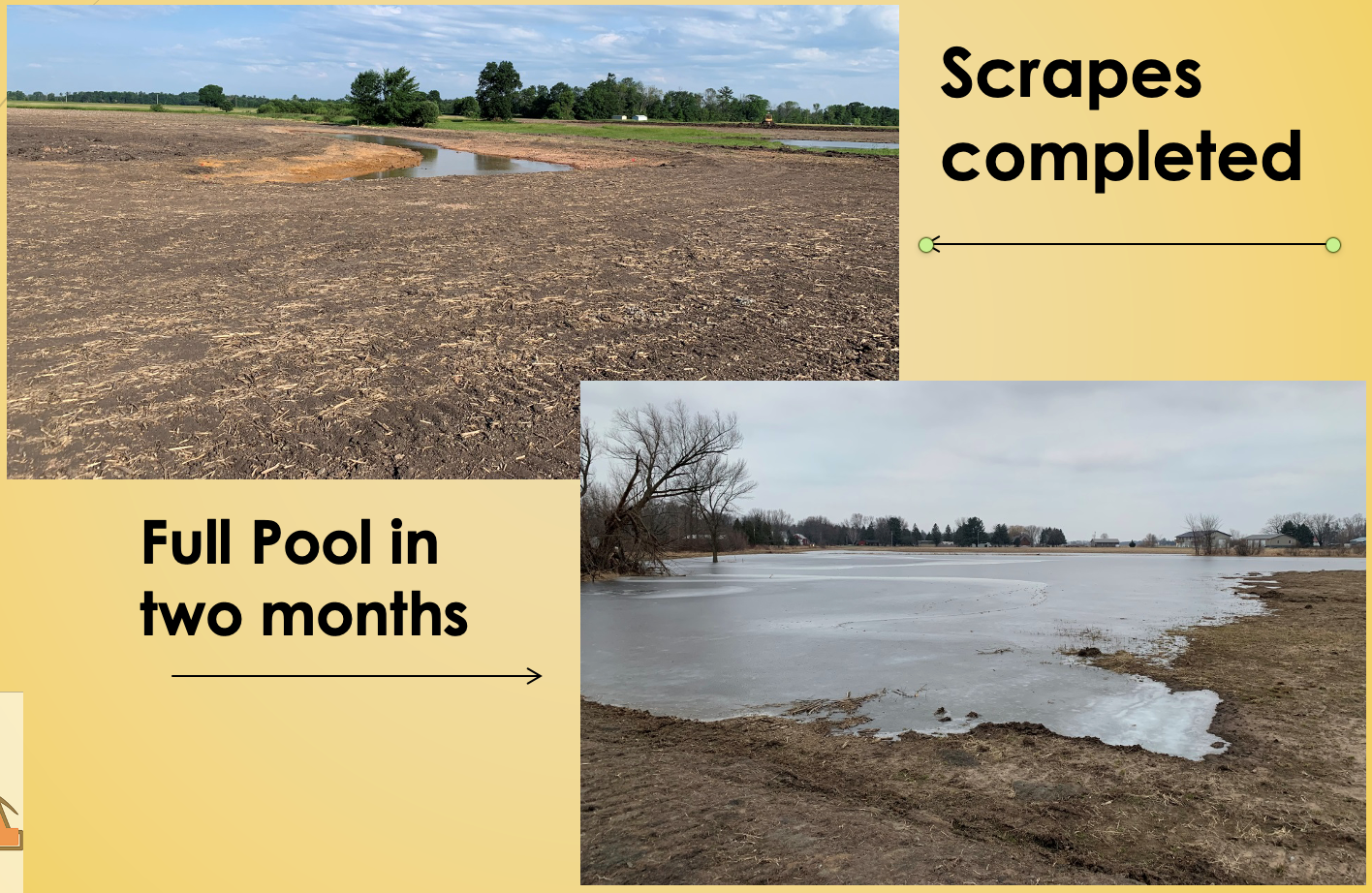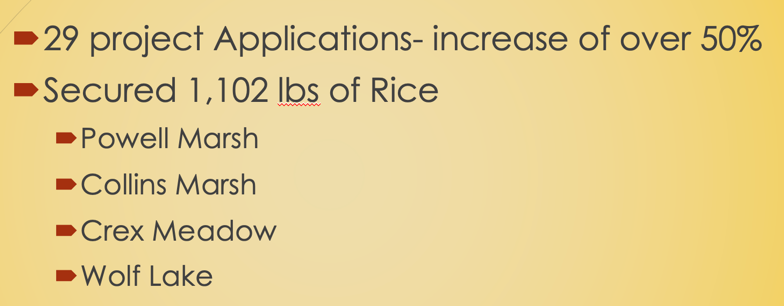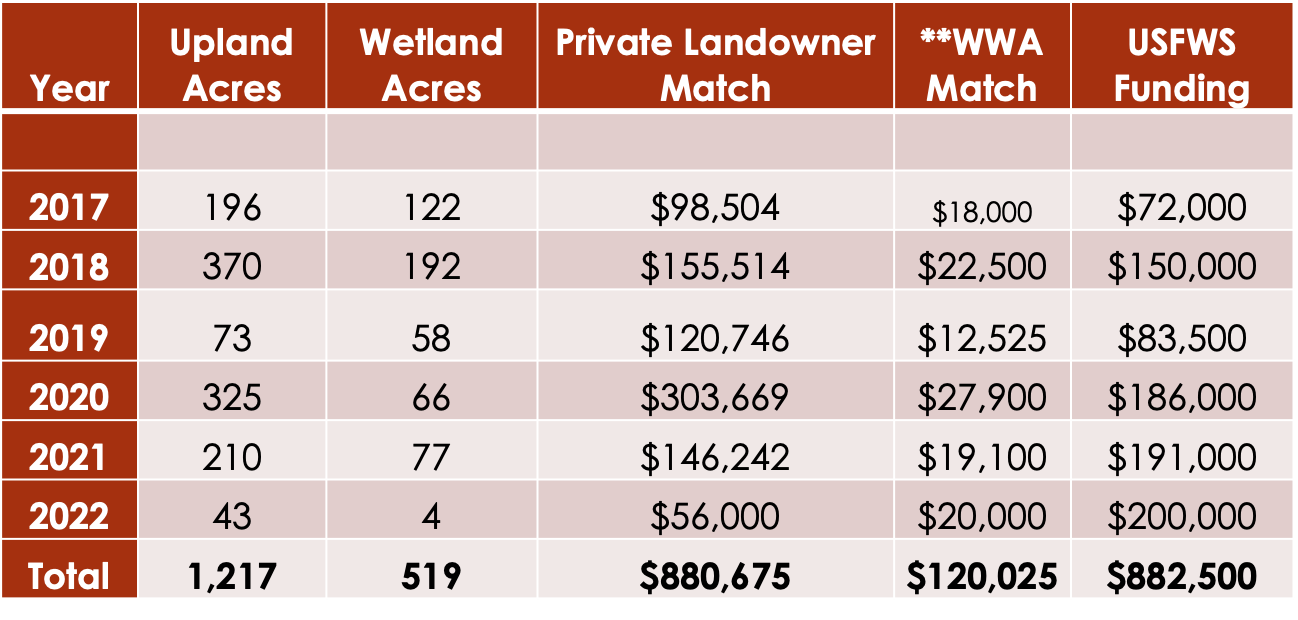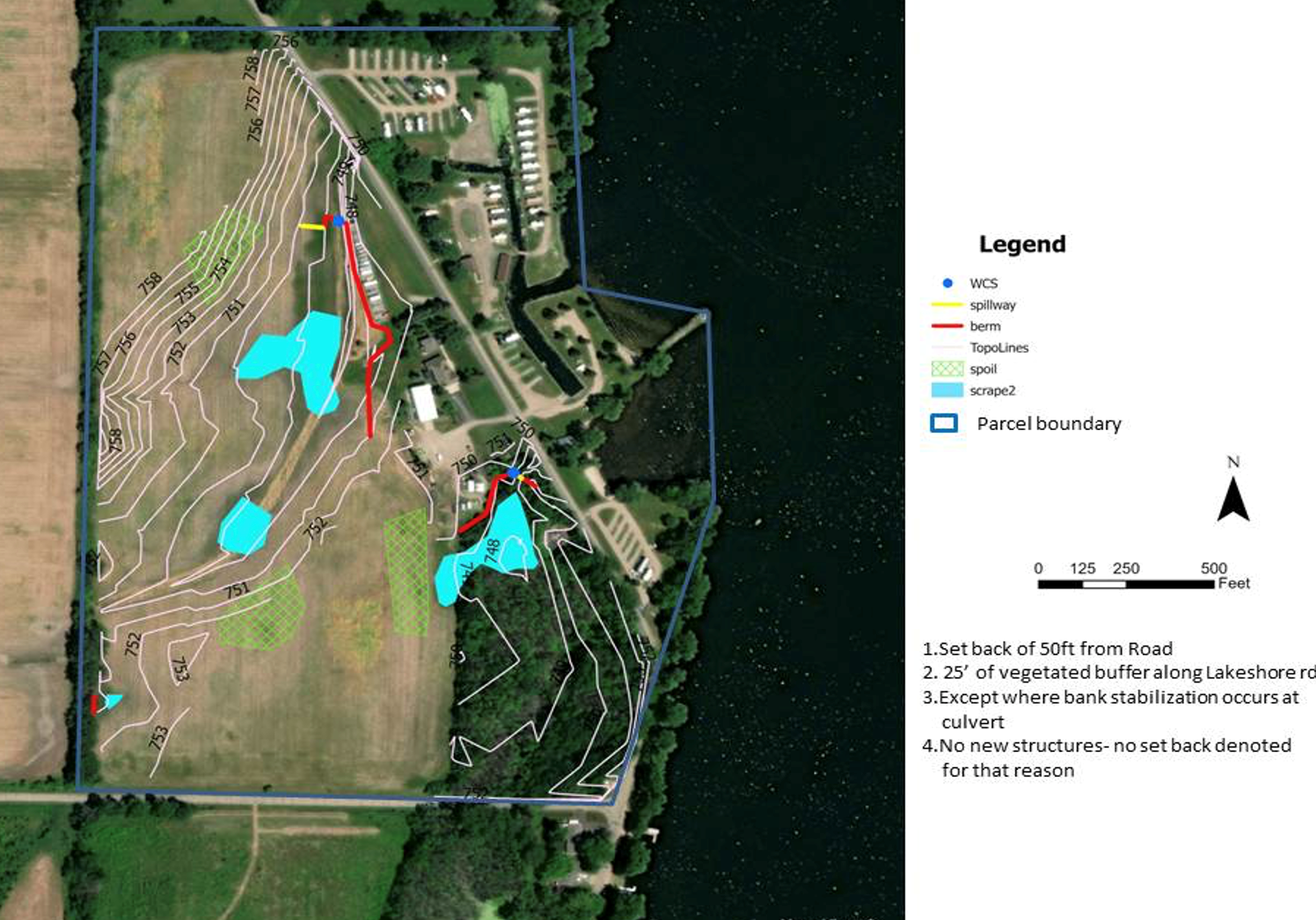County: Statewide
Project Start Date: 01/01/2022
Project End Date: 12/31/2022
More and better. WWA continued to rebound from a COVID slowdown with strong results in our habitat restoration work. 221 acres important to duck breeding were restored last year in 15 separate projects. This was done “very efficiently” as our grant donors would say, leveraging every dollar at least 2:1 against partner dollars (landowner, federal, local).
And we had more/better project opportunities to choose from, given a strong Habitat Committee effort to publicize our private lands program—applications were up a whopping 50% – allowing us to invest grant dollars in the most productive wetland opportunities.
Wild Rice. Additionally, we stepped into our role as “agent” for the DNR’s wild rice range expansion in the state (WWA is partnering with the state and native resource managers to significantly expand the state’s wild rice efforts.) While 2022 was a good year for wild rice – we collected and distributed 1100 pounds, more than in recent memory — there was still insufficient supply, leaving us with grant money in our pocket that we couldn’t completely use to purchase and spread wild rice seed. That said, with our new public lands ecologists, we will be building a plan to better leverage volunteer effort in this exciting opportunity to build habitats attractive to both waterfowl and human harvestings. You could play a role!
Partnerships. Finally, our partnership with the USFWS for supporting their wetland and upland restoration efforts yielded good results. In the last 5 years, we’ve contributed $120,000 that has been leveraged 12:1 to put over 1,700 acres of improved wetlands and uplands on the ground!
The future’s so bright, we gotta wear shades (apologies to Timbuk3). Success frequently builds on success, and that’s the case with WWA’s restoration programs. Our experience over decades in this field was recognized when the DNR contracted with us to restore neglected wetlands on state-managed properties in January. The additional capacity we’ve grown with the two new ecologists we just hired (see separate story) makes us super competitive for the grant dollars to conduct the restorations (like from Duck Stamp dollars, or North American Wetlands Conservation Act (NAWCA) funding, or others. We have tentatively been awarded $200K in state duck stamp dollars (for our public and private lands work), which can be doubled by matching it to federal (i.e., NAWCA) and other sources of dollars. Think about how much more we’re going to be able to do!

